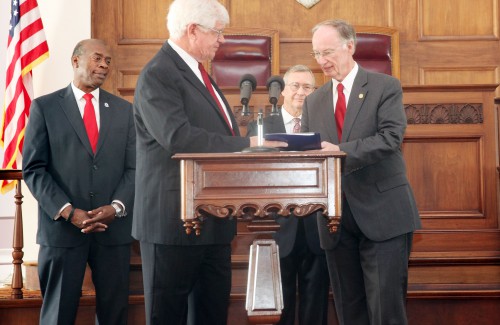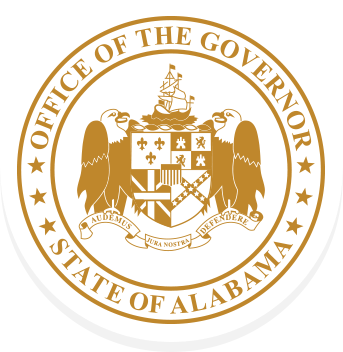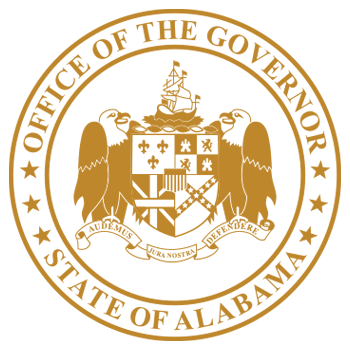Governor Bentley Releases Alabama Veterans Network Long Range Plan

MONTGOMERY—Governor Robert Bentley on Friday released the Alabama Veterans Network (AlaVetNet) Commission’s Long-Range Plan for a unified, statewide system for the delivery of services aimed at helping those who served in the military.
In December 2013, Governor Bentley signed Executive Order 42 creating AlaVetNet to address ways to better provide services for Alabama service members, veterans and their families. AlaVetNet commission members studied and evaluated all services in the state directed at improving the well-being of service members, veterans and their families in the key areas of education, employment, health, homelessness, legal assistance and family services.
Veterans Affairs Commissioner retired Rear Admiral Clyde Marsh and Alabama Department of Mental Health Commissioner Jim Reddoch served as co-chairs of the commission. Sixteen other members from state agencies and organizations were appointed to serve on the commission.
“Alabama is a strong pro-military state, and it is important to help our military members whenever we can,” Governor Bentley said. “I appreciate the AlaVetNet commission for working together to further develop and sustain veterans services. The real power of this commission is its capacity to bring together a wide range of entities – both public and private – across the state that have a shared mission of serving Veterans to make their efforts stronger, more efficient and more effective. I appreciate the work of commission members and look forward to evaluating the details in the report.”
Governor Bentley appointed Major General Larry Ross to serve as Coordinator of AlaVetNet and further develop the recommendations from the commission.
“I am truly honored to be appointed by Governor Bentley to coordinate the activities of AlaVetNet,” Major General (Retired) Larry Ross said. “Our mission is to improve the well-being and quality of life for our service members, veterans and families. By engaging organizations that want to help our veterans, we are creating a network that is stronger and has greater reach than each group operating alone. Success will come from leveraging our local and state government offices with non-profits, the business community, educational institutions, our clergy, and many other community support organizations, to identify and help solve individual and family issues for our veterans.”
The AlaVetNet report can be found here.
Provided by the Office of the Governor of Alabama | governor.alabama.gov

